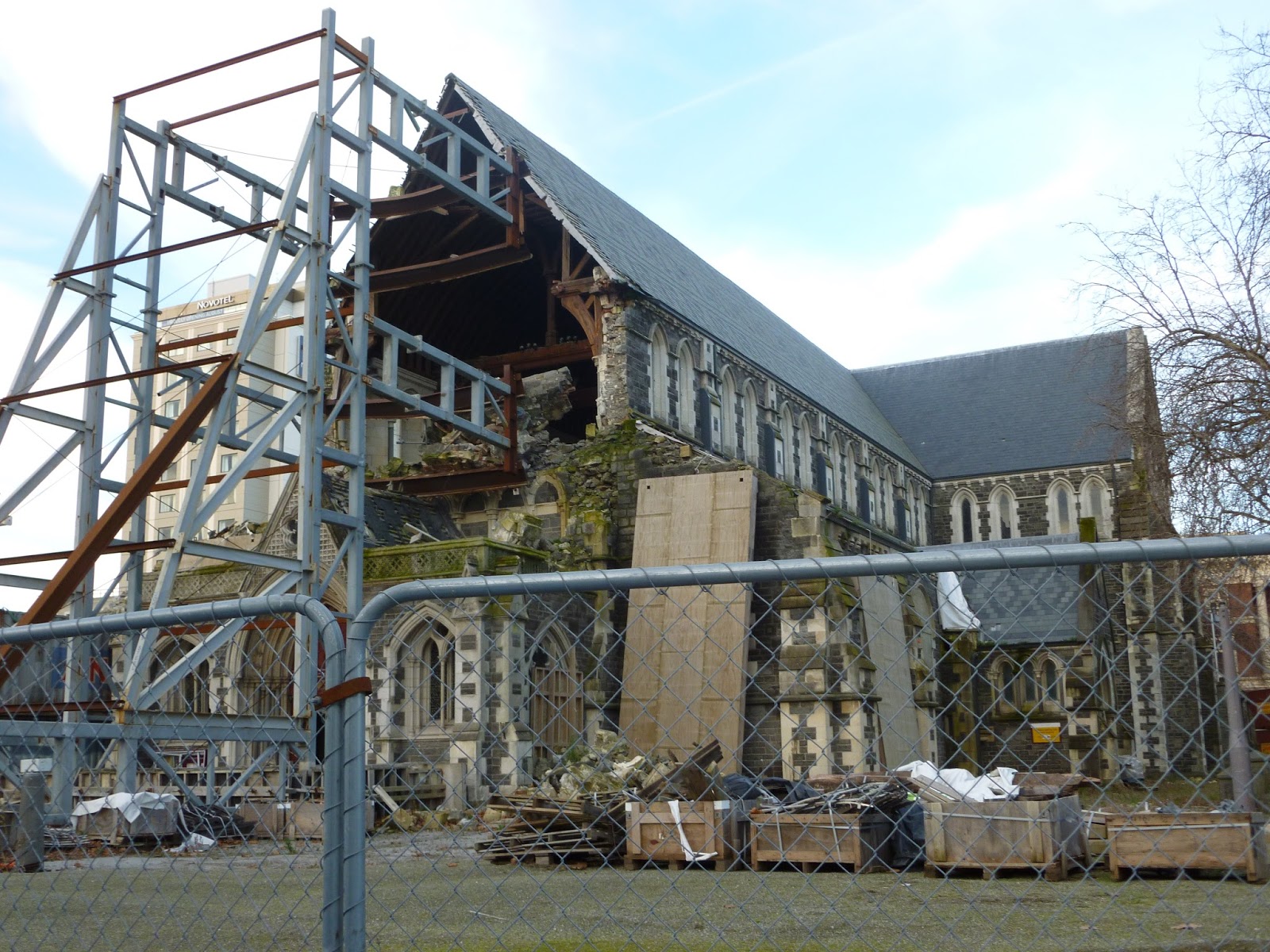We left for
Christchurch the next morning and arrived on the Canterbury plains after a few
hours drive. The city was pretty big, and driving in and to the hostel you
could barely tell there had been an earthquake other than a few closed
buildings, etc.. After I settled in and went for a wander into the downtown
area it was a different story. Three years after the first quake it was quite
clear how bad the devastation had been, and how big the rebuilding efforts
were. There were empty corners a-plenty where buildings had been removed and
not yet rebuilt, but several of these were filled through 'open-space projects'
- community efforts to fill in the gaps in Christchurch's centre through
innovative ideas like mini putt courses and, my favourite, a pallet pavilion.
The pallet pavilion was a very neat space where brightly coloured pallets had
been stacked and some decorated or filled with plants to form a square with a
stage, coffee shop, and lots of innovative seating - yay rebuilding!
The downtown also still had several streets closed to cars, but most were navigable on foot. Walking around, I saw many buildings which were still in ruins, their walls stabilized by beams or leaning against boxcars for stability (lots of boxcars actually). Through the destruction, there was still lots going on in the city with restaurants set up out of box cars throughout the area, and a whole boxcar shopping area (complete with LuluLemon, which I went into to say hi to the Canadians which were working there:)).
Taking a walk through the Cathedral square was interesting and, the cathedral structure was still visible through the construction fence (there were so many construction/engineering projects going on in the area and so many workers busy fixing things, it shows how destroyed the city was that they aren't all done yet!). I took a look at the Earthquake City Museum, and got great picture of the stories and struggles of the city. It was a really cool display with lots of information and stories. I took a meander through the beautiful botanical gardens on my way back to the hostel, and they were quite alive and well - beautifully so! Overall, I'd say the city is alive and well - what doesn't destroy a city makes it stronger.
Pallet Pavillion
The downtown also still had several streets closed to cars, but most were navigable on foot. Walking around, I saw many buildings which were still in ruins, their walls stabilized by beams or leaning against boxcars for stability (lots of boxcars actually). Through the destruction, there was still lots going on in the city with restaurants set up out of box cars throughout the area, and a whole boxcar shopping area (complete with LuluLemon, which I went into to say hi to the Canadians which were working there:)).
Downtown shopping - I`ve never seen box cars that looked so good!
Taking a walk through the Cathedral square was interesting and, the cathedral structure was still visible through the construction fence (there were so many construction/engineering projects going on in the area and so many workers busy fixing things, it shows how destroyed the city was that they aren't all done yet!). I took a look at the Earthquake City Museum, and got great picture of the stories and struggles of the city. It was a really cool display with lots of information and stories. I took a meander through the beautiful botanical gardens on my way back to the hostel, and they were quite alive and well - beautifully so! Overall, I'd say the city is alive and well - what doesn't destroy a city makes it stronger.
The famous Christchurch Cathedral



No comments:
Post a Comment